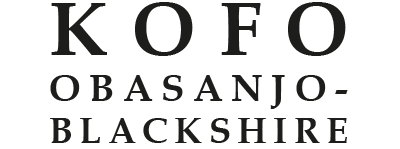As though there wasn’t enough to contend with, such as the calibre of some of the front-runners, the monumental task facing whoever wins these elections and the simple day-to-day challenges of living in what someone has described as a ‘washing machine’, due to the sheer effort and stress it takes to survive day to day, Nigerians also face heightened insecurity because of the malignant activities of some who would derail the elections.
Violence in the Northwest is exemplified by the ambushing of a train travelling to Kaduna from the capital, Abuja in April 2022 only a few days after an airport attack which also took place in Kaduna. These were preceded 6 months earlier by explosives laid on the same train track. The rail route, which had become the preferred option for senators and politicians for whom it presented a safer alternative to the dangerous roads connecting the two cities, had to be suspended. Frequent outbreaks of maiming, abduction, armed robbery, kidnapping for ransom are indiscriminate, targeting all social classes from politicians and their families to imams, clergymen, security guards, lecturers, students and farmers.
In the Northeastern part of the country, armed groups allied to ISIL and Boko Haram commit ‘grave violations’ against ordinary citizens, including children, who are abducted, killed, maimed, recruited and used, and endure sexual violence. Borno state has been the epicentre of conflict with jihadist insurgents for over a decade, and in that period has produced the highest number war-related displacement in the country’s Northeast. The capital, Maiduguri, is home to more than 500,000 Internally Displaced Persons (IDPs).
Secessionists in the Southeast continue to call for the creation of an independent state of Biafra, with intensifying violence. The Indigenous People of Biafra (IPOB) has been blamed for killings of civilians and security forces. Conflict between farmers and herders plagues many parts of the Southwest as migrating Fulani herders trespass aggressively onto farmland.
Conducting free, fair and credible elections in a prevailing atmosphere of violence, fear and insecurity is a formidable endeavour. The electioneering process itself is not spared. In November 2022 the campaign convoy of Atiku Abubakar, the presidential candidate of the PDP came under attack from gunmen in Maiduguri, Borno State. In May of the same year, three delegates of the PDP governorship primary election in Minna, Niger State and one other person were killed by unknown gunmen. Last October, the campaign team of the Lagos State PDP candidates including the governorship candidate, Dr Olajide Adediran (Jandor), and his running mate, Ms Funke Akindele, were attacked by political thugs.
The Independent National Electoral Commission (INEC) itself has recorded 50 attacks on its offices nationwide between 2019 and 2022, including one on Sunday, the 15th of January, by gunmen on its Enugu office. Destruction of ballot boxes, voting cubicles, looting of power generators, theft and damage to uncollected Permanent Voter Cards (PVCs) are a disheartening and worrying experience.
The president has charged the security services to address the situation with rigour and focus. Nigerians must not allow these threats to dissuade them from exercising their rights. These high-stakes elections concern every citizen and this is the opportunity for change. Tackling the epidemic of violence in the nation is one of the highest priorities for the next president. Now is the moment to choose the right leader. A wise person once said, ‘not voting is not protest, it is surrender.’ If you are eligible to vote, get out there and make it count.
